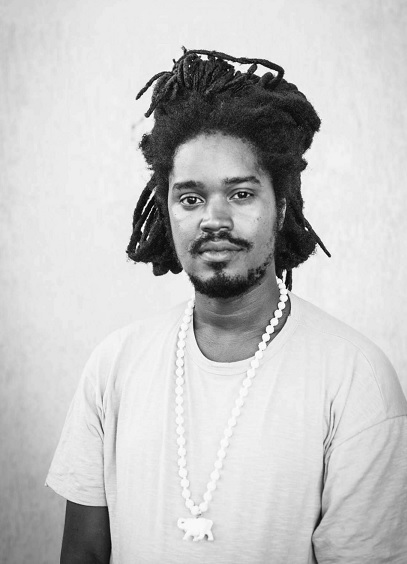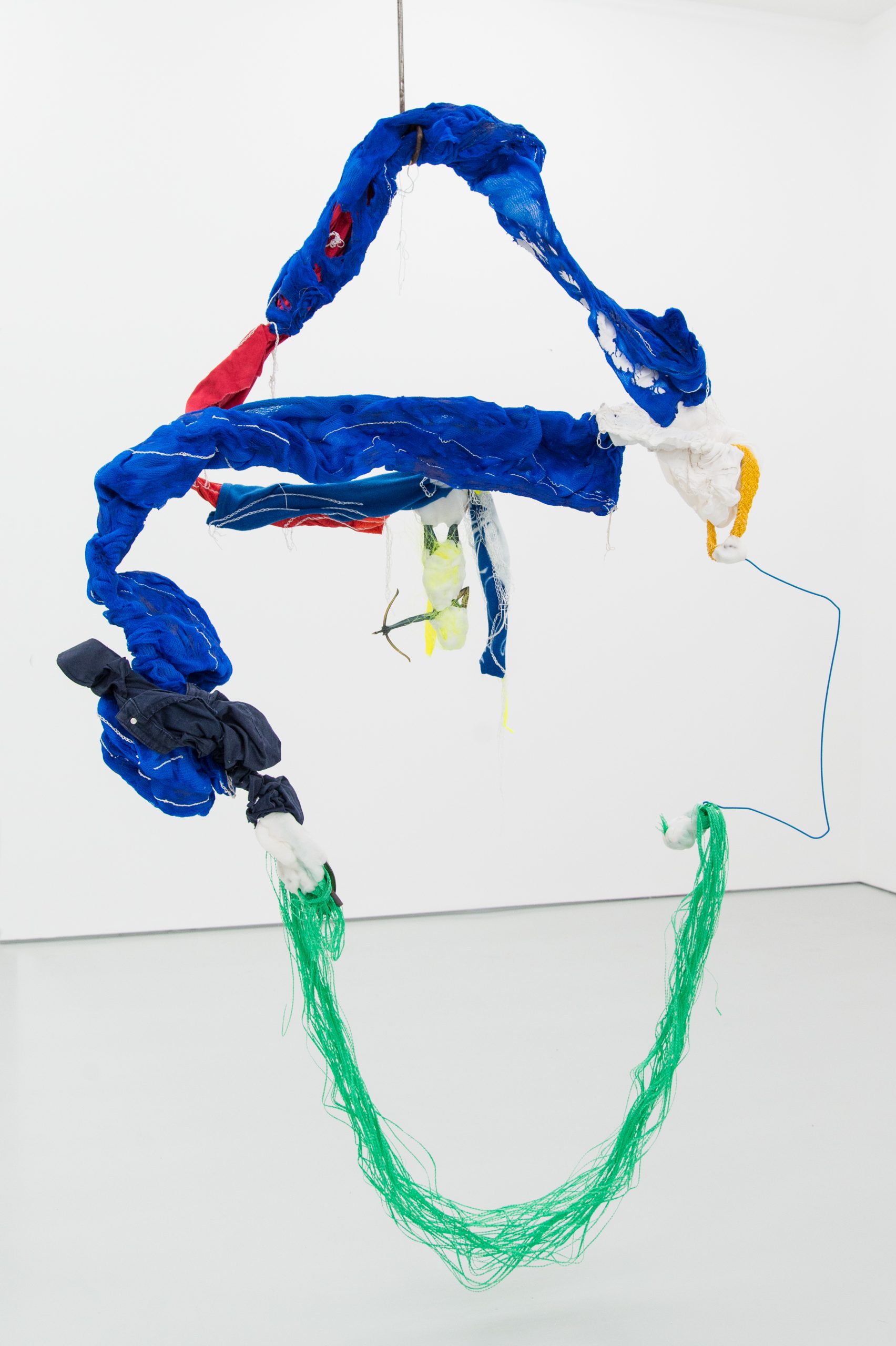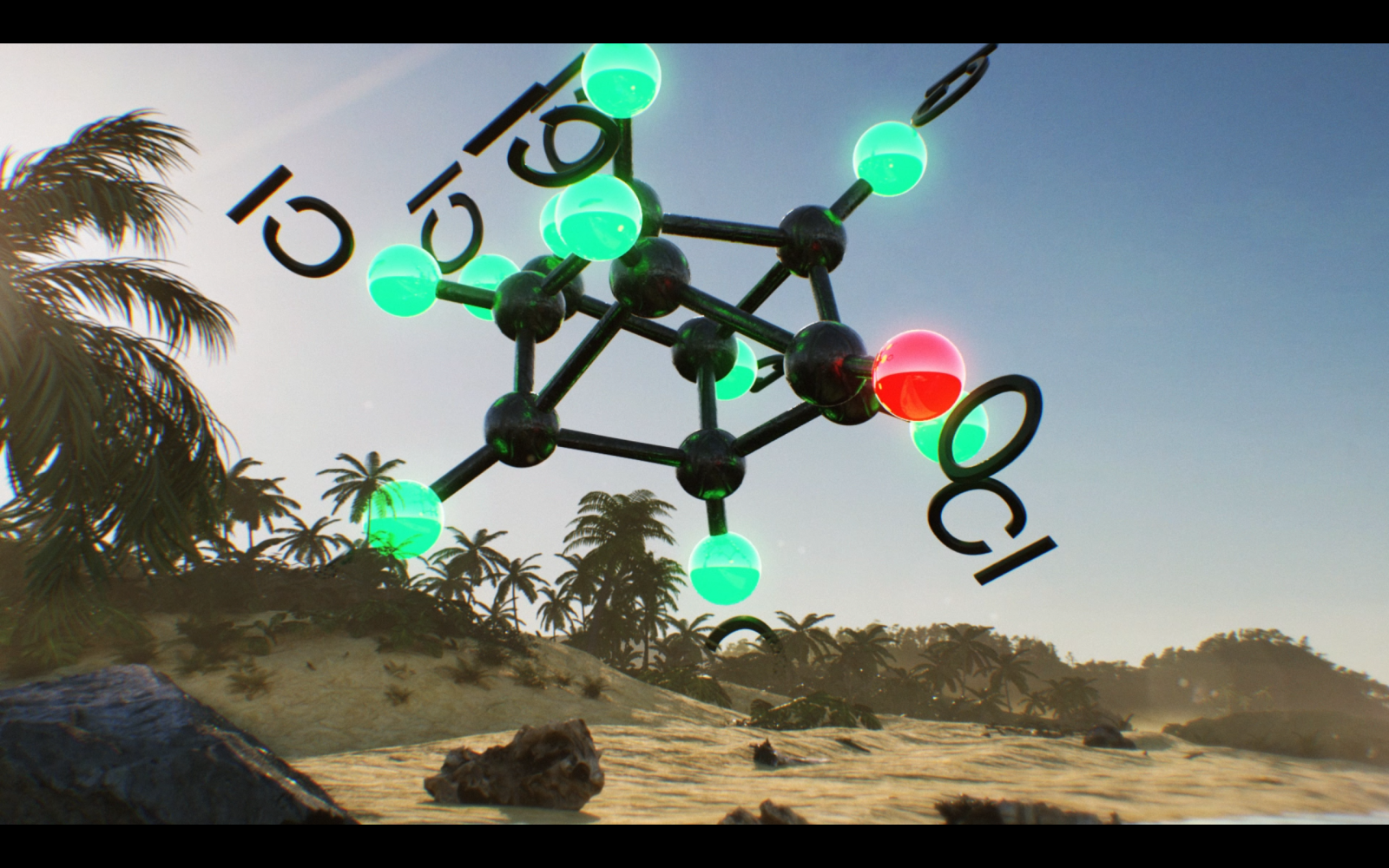Artists
Julien Creuzet
Julien Creuzet (born in Le Blanc-Mesnil, France; lives in Montreuil, France) explores diasporic experiences through the lens of cultural heritages, including his own. In immersive works that combine sculpture, video, poetry, and music, he highlights connections among imaginaries, social realities, and forgotten stories. He draws his inspiration from the Martinican poets Aimé Césaire and Édouard Glissant and their reflections on creolization, migration, and the figure of the archipelago – poetic and theoretical spaces where diversity and difference manage to be preserved, yet in a globalizing spirit.
- Born
- Le Blanc-Mesnil, France
- Countries / Nations
- France
- Lives
- Montreuil, France
- Website
- juliencreuzet.com

Works

Julien Creuzet, my sedative language / makes my attitude passive / discret bruise / suddenly explodes (...), 2019, sculpture. Courtesy of the artist and High Art (Paris)

Julien Creuzet, mon corps carcasse / se casse, casse, casse, casse (...), 2019, video still. Courtesy of the artist and High Art (Paris)
Worldmaking Tentacles
In the video mon corps carcasse / se casse, casse, casse (…), Creuzet takes us to a virtual banana plantation contaminated by Kepone, an ecotoxic pesticide that is still poisoning Martinique and Guadeloupe almost 30 years after it was banned. Suspended in a tropical landscape and accompanied by a harrowing sound ambience, a gigantic ketone molecule slowly spins, throwing threatening shadows onto the beach. Then, everything explodes: a nightmarish universe takes over the screen as streams of pills swirl with bunches of calcified bananas. The images, now paced by electronic music, are paired with poetic fragments, to which the title of the sculpture my sedative language / makes my attitude passive / discret bruise / suddenly explodes (…) refers. Juxtaposed with the video, the sculptural assemblage presents an accumulation of materials collected, purchased, or made by Creuzet over time and through encounters, forming a body-archive. In these works, Creuzet addresses the environmental injustice perpetrated by colonialism, along with the social issues that result. In fact, the ecological disaster that afflicts Martinique and Guadeloupe is also a human one, as 92 percent and 95 percent of their populations, respectively, have been contaminated by Kepone, according to a study conducted by Santé publique France in 2013. At a time when many regions in the Global South have fallen under the Plantationocene system (the name given to the devastating reallocating of territories for use as commercial plantations based on colonialism, slavery, and exploitation) thanks to which the West obtains its exotic fruits and many other benefits, Creuzet highlights the power games through which our relationships with nature are modulated.